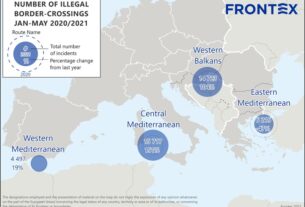EMA’s human medicines committee (CHMP) has concluded that a booster dose of the COVID-19 vaccine Spikevax (from Moderna) may be considered in people aged 18 years and above.
This follows data showing that a third dose of Spikevax given 6 to 8 months after the second dose led to a rise in antibody levels in adults whose antibody levels were waning. The booster dose consists of half the dose used for the primary vaccination schedule.
The current data indicate that the pattern of side effects after the booster is similar to what occurs after the second dose. The risk of inflammatory heart conditions or other very rare side effects after a booster is being carefully monitored. As for all medicines, EMA will continue to look at all data on the safety and effectiveness of Spikevax.
At national level, public health bodies may issue official recommendations on the use of booster doses, taking into account the local epidemiological situation, as well as emerging effectiveness data and the limited safety data for the booster dose.
Earlier this month CHMP concluded that a booster dose of Comirnaty (from BioNTech/Pfizer) may be considered at least 6 months after the second dose for people aged 18 years and older. In addition it recommended that an extra dose of Comirnaty and Spikevax may be given to people with severely weakened immune systems, at least 28 days after their second dose.
More information about the booster recommendation for Spikevax will be available in the updated product information.
National immunisation campaigns
The implementation of vaccination campaigns in the EU remains the prerogative of the national immunisation technical advisory groups (NITAGs) guiding the vaccination campaigns in each EU Member State. These bodies are best placed to take into account the local conditions, including the spread of the virus (especially any variants of concern), the availability of vaccines and the capacities of national health systems.
EMA will continue working closely with national authorities and the European Centre for Disease Prevention and Control (ECDC) to evaluate available data and provide recommendations to protect the public during the ongoing pandemic.
ema.europa.eu


















